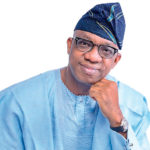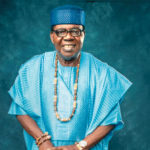The women of Yeyedulo company community of Tufo Ward, in Gurara Local Government Area of Niger State, have set a target for themselves to sink a borehole that would serve them with clean water for domestic uses.
For the women, the daily tiring walk to the stream is an experience they want to change in their life time and bring it to an end for themselves, the younger generation and the community at large.
For many years, families at the Yeyedulo company community have had a tough time eking out a living from their various small scale trades. These women may have been listed in one or more economic empowerment projects slated for execution by the federal or state government, but none has changed their lives for the better.
This situation has therefore spurred them to come together in a self-ascribed association called the Women Affinity Group (WAG),a group focused on the sole aim of boosting the economic wellbeing and social statuses of women with no particular tie to politics. For them, life must be better, as they gradually channel their social capital into wealth.
The women, particularly, in the bid to contribute to their family’s economic growth have always engaged in one trade or the other, all of which are done at small scale level such as farming, branning of rice, and preparation and sales of local seasonings, among others.
Lack of available resources and access to basic financial skills has therefore made the women to embrace a new concept of self-development championed by Nigeria for Women Programme, supported by the World Bank.
“There are days we have to eat only once a day. Some other times, we cannot cook because there may not be money to buy oil or local seasoning to give taste to our meals,” Victoria Ibrahim, Chairman of the rural affinity group said.
Victoria’s tale is a common situation across many rural communities of Nigeria where the federal government has said it was determined to take 100 million people out of poverty. She represents part of the 41% Nigerian rural women, who are in business basically for survival.
While in this circle of lack, the Federal government in partnership with the World Bank, activated programmes to eliminate extreme poverty, in line with goal one of the Sustainable Development Goals (SDG).
Tagged “Nigeria for Women Project” NFWP, the initiative, a special purpose vehicle to deliver real empowerment to Nigerian women runs in six states of the federation. It adopted a working template and in two years, it has raised over N1 billion cash assets of these rural entrepreneurs, from the hard working rural poor who are gradually escaping extreme poverty.
Grace Kakau, a Behavioral Change officer who is part of the programme said “the women have gradually turned their normal earnings to fruitful savings,” which has contributed to changing their economic lives.
Speaking further she said that “the women have implemented the various business skills they have learnt from the programe promoted by the World Bank and the Federal government through the Ministry of Women Affairs; today, they are better than they have started months back.”
Speaking through an interpreter, Mrs. Victoria Ibrahim who leads the women group, said: “the programme seemed to have been designed with us in mind. We are able to meet up with my child’s school books. He does not go to school with torn uniforms anymore and we are able to eat a decent meal.”
Under the World Bank programme, women are enjoined to self-select themselves according to their economic and social statuses. They are knitted into an affinity group with a minimum number of fifteen and maximum of twenty-five persons to engage in weekly savings. It comprises personal savings and contributions of social funds, interest-free-loans which attract service charges and are redistributed among members at the completion of a decided cycle, pegged within nine months upward to a full year.
Information available said from the training manual, the programme at the pilot stage targets a total of 324,000 women beneficiaries in total, grouped in 21,600 groups.
The pilot programmes which would last five years have entered the third year already with six states in the pilot scheme. These were chosen based on geo-political zone and includes: Taraba, (North East), Ogun, (South West) Kebbi, (North West) Abia, (South-East) Niger, (North Central) and AkwaIbom for the South-South.
Allahnanan Simeon, is the secretary of the association. She said that, “we are happy to have this kind of meeting. It has brought us closer beyond the welfare greetings that ends at the utter end of the words. When we meet at the stream to wash or fetch water, we are more concerned about one another, the meeting has engender a deeper communal bod amongst us,” she said.
Allahnanan recounted her efforts and how it improved her living condition as she progressed on her trade in the sales of rice. She said “I had only 20 measures (mudus of unbranded rice). I got a loan of N5,000, after a while I got another loan of N20,000, because I was dedicated to the business. Today I can boast of selling a bag of rice. The programme has eliminated the issue of total lack amongst us.”
These real life stories are what the programme wants to replicate in the over 8,000 wards of Nigeria to quash extreme poverty, Ruth Mshelia, National Coordinator, Nigeria for Women Programme has said.
Already, the Niger State government has demonstrated its commitment to the pilot programme in some local governments in the state and has met its counterpart funding with the World Bank to give grants to the women and their group, when they present a workable proposal.
The state has also commenced disbursement of grants to successful business proposals. The grants are between a minimum of N20,000 to a maximum amount of N60,000. This grants are for individual members of the various women group under the programme.
The programme has 875 women beneficiaries already cleared for the grants. The number is expected to increase as the board cleared further requests for the empowerment scheme.






